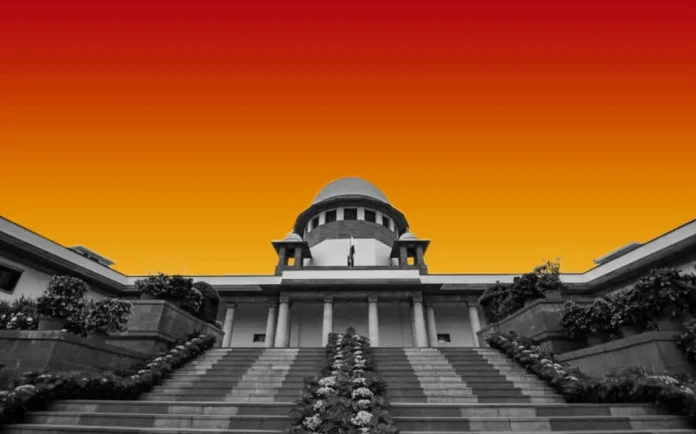All India Majlis-e-Ittehadul Muslimeen (AIMIM) MP Asaduddin Owaisi and Kishanganj Congress MP Mohammad Jawed on Friday filed two separate petitions in the Supreme Court challenging the Waqf (Amendment) Bill, 2025, which was passed by both the Houses and is now awaiting presidential assent to become a law.
Terming the Waqf (Amendment) Bill, 2025 as unconstitutional, Owaisi moved the Apex Court.
Earlier in the day, Congress MP Mohammad Jawed filed a petition in the Apex Court challenging the Bill for being discriminatory towards the Muslim community and violating their fundamental rights.
Jawed contended that the Bill violated Articles 14 (right to equality), 25 (freedom to practice religion), 26 (freedom to manage religious affairs), 29 (minority rights) and 300A (right to property) of the Constitution.
The Bill, which aimed to regulate the Waqf properties by proposing amendments in the Waqf Act, 1995, was cleared by both the Lok Sabha and the Rajya Sabha.
During the Lok Sabha debate, Owaisi called the Bill a grave violation of Articles 14 and 26 of the Constitution.
The AIMIM MP said that Muslims would face restrictions on waqf property and the encroacher would overnight become the owner. A non-Muslim would administer the process, he added.
The MP further alleged that the Bill discriminated against Muslims by stripping them of administrative control over waqf properties.
Noting that the Hindus, Sikhs, Jains and Buddhists have been given the right to administer their religious groups, Owaisi asked why the same rights were being taken away from Muslims.
Tearing a copy of the legislation, Owaisi termed it a mockery of democracy. He alleged that the government was trying to nominate it’s pawns in the Waqf Council and Waqf Board by calling them religion-neutral.
The Waqf (Amendment) Bill, 2025 was first introduced in the Lok Sabha in August 2024.
The legislation was later sent to the Joint Parliamentary Committee (JPC), which accepted suggestions for certain amendments.
Waqf refers to properties dedicated exclusively for religious or charitable purposes under the Islamic law. The Waqf Act, 1995, was enacted to govern the administration of waqf properties (religious endowments) in India.
It provides for the power and functions of the Waqf Council, State Waqf Boards, the Chief Executive Officer, and the mutawalli. The Act further speaks about the power and restrictions of Waqf Tribunals, which act in lieu of a civil court under its jurisdiction.
The Waqf (Amendment) Bill, 2025, seeks to rename the 1995 Act to the Unified Waqf Management, Empowerment, Efficiency and Development Act, reflecting its broader objective to improve the management and efficiency of Waqf boards and properties.
While the Act allowed waqf to be formed by declaration, long-term use, or endowment, the Bill states that only a person practicing Islam for at least five years may declare a waqf. It clarifies that the person must own the property being declared. It removes waqf by user, where properties could be deemed as waqf based solely on prolonged use for religious purposes. It also adds that waqf-alal-aulad must not result in the denial of inheritance rights to the donor’s heir including women heirs.
While the Act empowered the Waqf Board to inquire and determine if a property is waqf, the Bill removes this provision.
The Bill provides that two members of the Central Waqf Council, set up to advise the Central and State governments and waqf boards, must be non-Muslims. Members of Parliament, former judges, and eminent persons appointed to the Council as per the Act need not be Muslims. Representatives of Muslim organisations, scholars in Islamic law and chairpersons of Waqf Boards must be Muslims. Of the Muslim members, two must be women.
The Bill empowers the Central government to make rules regarding the registration and publication of accounts of waqf, along with the publication of proceedings of Waqf Boards.
Under the Act, State governments could get the accounts of Waqfs audited at any point. The Bill empowers the Central government to get these audited by the CAG or a designated officer.


